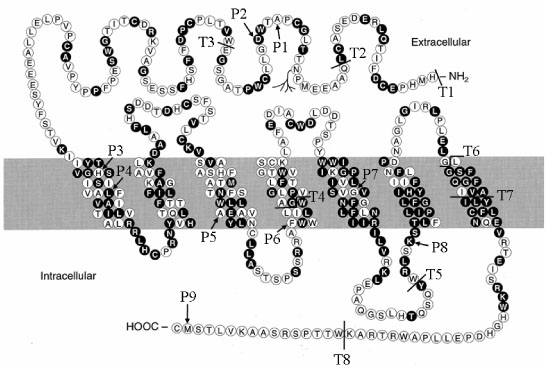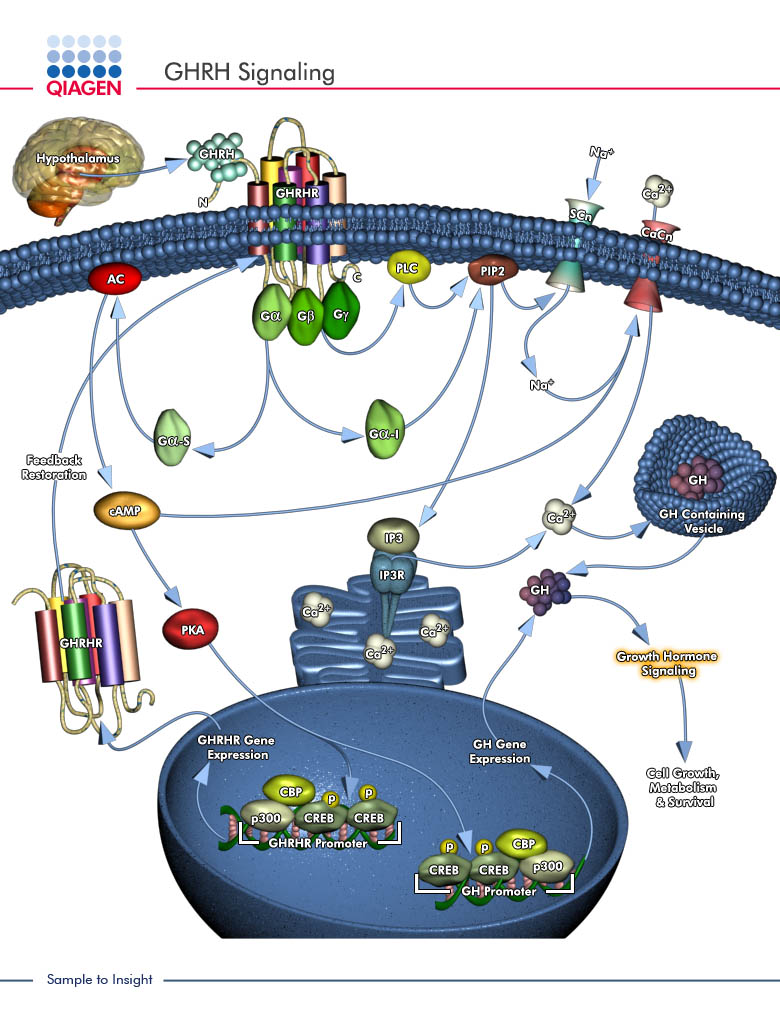Sandbox WWC5
From Proteopedia
Contents |
Growth Hormone Releasing Hormone
|
Introduction
Growth hormone releasing hormone (GHRH) is a secretory neurohormone that causes growth hormone to be released from the pituitary gland. It is naturally produced in the arcuate nucleus of the hypothalamus. The hormone is produced as a 44 amino acid peptide hormone, and first appears in the hypothalamus between 18 and 29 weeks of gestation, corresponding to the initial production of growth hormone by the fetus [1]. Growth hormone is required for normal fetal and post fetal development, including bone growth and the regulation of protein production and the metabolism of lipids and carbohydrates [2].
Structural Features
GHRH Receptor
The GHRH receptor gene is expressed in the pituitary as a G-coupled receptor that binds GHRH, resulting in the release of growth hormone [3]. Typical of most G-protein type receptors, the GHRH receptor has 7 transmembrane folds, and has a molecular weight of 44 kD [4]. The figure below and to the left is a model of the extracellular domain of the GHRH receptor. The figure below and to the right shows the extracellular and membrane spanning sections of the GHRH receptor, with possible single nucleotide points of mutation indicated by the letters T and P.
|
Function and Pathway
This image shows the signalling pathway of GHRH causing the release of growth hormone [4]


